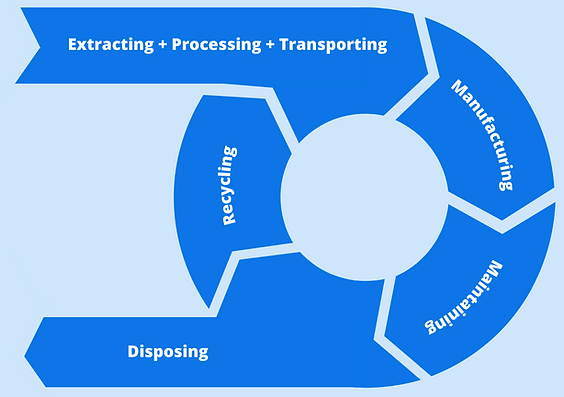Life Cycle Assessment - What, Why and How?

What is LCA?
-
Life Cycle Assessment (LCA) is a vital method for measuring and disclosing the environmental impact of products and companies.
-
It simplifies complex data, providing a comprehensive approach to improve sustainability and inform decision-making.
Why LCA is crucial?
-
Life Cycle Assessment (LCA) is crucial for businesses as it translates complex environmental data into actionable insights.
-
This enables informed decisions on product design and supplier selection, identifying value-creating opportunities for enhanced sustainability and reduced environmental impact.
Why learn LCA?
-
As businesses increasingly prioritize environmental responsibility, professionals with LCA skills are in high demand.
-
Proficiency in LCA opens doors to diverse career opportunities in industries actively pursuing environmentally conscious practices, giving you a competitive edge in the evolving professional landscape.
Bootcamp Timeline
What are we providing you?
Deepen your knowledge of Life Cycle Assessment (LCA) fundamentals.
Gain job-ready skills through hands-on projects and practical experience.
Learn from industry experts and seasoned professionals in the field.
Build a network and collaborate with peers
Hone LCA specific critical thinking & problem-solving.
Be a part of an active and growing community
Why should you join?
This course is tailored for students, recent graduates, and professionals seeking comprehensive knowledge of product life-cycle assessment (LCA), carbon footprint (CFP), and Environmental Product Declaration (EPD). Participants will gain hands-on experience in conducting CFPs and creating EPDs.
01
Grasp core concepts of Life Cycle Assessment (LCA).
02
Explore the necessity for EPDs and CFPs, along with the regulations driving their adoption.
03
Learn the fundamentals of Design for Environment (DfE) - Product Stewardship, a pivotal discipline guiding the integration of environmental considerations into product design.
04
Analyze LCA case studies of products and services from various industries.
05
Engage in a one-on-one practical session utilizing GABI software.
06
Gain hands-on experience with us, focusing on its capabilities and features.
Did you know?
LCA can analyze a wide range of products?
Coca Cola pioneered the first-ever LCA in 1969?
LCA has an anticipated 8% growth by 2028?
LCAs extend their reach from high-tech components like jet engines and everyday items like drinking cups to unexpected entries like New Zealand Greenshell mussels. By identifying a system with a clear start and end, LCA enables a comprehensive analysis of how that system impacts the environment throughout its life cycle.
It might come as a surprise – but the first Life Cycle Assessment was conducted by Coca Cola in 1969! During the environmentally conscious late 60s, driven by the oil crisis and concerns about population growth, Coca Cola took a groundbreaking step, laying the foundation for sustainability assessments.
Life Cycle Assessment (LCA) analyst is set to generate over 7,000 job opportunities across the U.S. The increasing demand reflects the rising importance of sustainability and environmental impact assessment in various industries. It is the need of the hour around the world.
What skills will you learn from this bootcamp?

Design Skills
Learn to identify and implement changes in product design to minimize environmental impact.
Strategic Purchasing Expertise
Assess and choose products based on their environmental impact, making informed purchasing decisions.
Marketing Insight
Evaluate and effectively communicate a product's environmental superiority compared to competitors
Analyzing & Benchmarking
Track and analyze environmental performance over time, facilitating year-to-year comparisons and perform as per industry standards.
Policy Analysis
Develop the capability to analyze and recommend initiatives that contribute to overall environmental improvement.
Our Speakers
Are you wondering if this is meant for you?
Life Cycle Assessment (LCA) focuses on:
-
Greenhouse gas emissions
-
Energy usage
-
Water consumption
-
Climate change contribution
The workshop emphasizes practical approaches, industry commitments and real-world case studies to equip participants with the knowledge and skills needed to contribute to a more effective Life Cycle Assessment.









